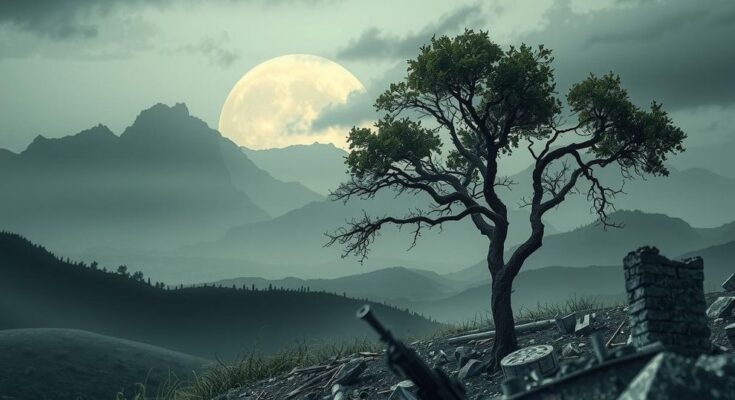Rwandan-backed M23 rebels have taken control of Bukavu, the second-largest city in eastern DR Congo, following their earlier capture of Goma. Local reactions have been mixed, with some residents welcoming the fighters amidst fears of violence. The situation has prompted warnings from international bodies about potential regional conflict, while the Congolese government calls for residents to stay indoors and considers sanctions against Rwanda.
Bukavu, the second-largest city in eastern Democratic Republic of Congo, has fallen to Rwandan-backed M23 rebels, who have captured the regional governor’s office. As these fighters entered the city without resistance, some local residents lined the streets, clapping and cheering for them. This marks Bukavu as the second city, following Goma, to be overtaken by these rebels in a rapidly deteriorating security situation in the mineral-rich region.
The Congolese government has acknowledged the loss of Bukavu, urging residents to remain indoors to avoid potential targeting by the occupying forces. The recent offensive has resulted in the displacement of hundreds of thousands of people, prompting warnings from the United Nations and European nations regarding the risk of escalating violence into a broader regional conflict.
A local resident expressed fear, stating, “Since yesterday the children and the youth took the weapons. They are shooting everywhere in all directions, they are looting.” Reports indicate that the M23 fighters received a warm welcome from some locals, as fear and uncertainty prevail amidst the absence of government authority in the area.
Following the M23’s capture of Bukavu’s main airport, their advance towards the city commenced, leading to the withdrawal of Congolese troops to prevent urban combat. This strategic withdrawal has created a security void, resulting in chaotic scenes including a reported prison break and significant looting, with nearly 7,000 tonnes of food stolen from a UN World Food Programme warehouse.
The fall of Bukavu, a major transit point for the local mineral trade located near the Rwandan border, signifies an expansion of control for the M23 since their resurgence in late 2021. This development is viewed as a setback for President Félix Tshisekedi’s government, which accuses Rwanda of perpetrating human rights abuses and destabilizing the region to capitalize on its resources, a claim Rwanda denies.
In a statement, government spokesman Patrick Muyaya underscored Rwanda’s alleged violation of Congolese territorial integrity and human rights norms. President Tshisekedi has called for international sanctions against Rwandan President Paul Kagame in light of the unrest. Kagame has dismissed such threats, asserting that Rwanda prioritizes its own security against threats posed by the FLDR rebel group.
On the ground in Bukavu, M23 troops assembled at Place de l’Indépendance, with commander Bernard Byamungu engaging with locals and encouraging government soldiers to surrender. He accused retreating Congolese forces of spreading terror through the militarization of local youth, who have engaged in looting during the chaos.
The African Union, meeting in Ethiopia, has expressed deep concern over the situation, urging M23 to disarm and emphasizing the risks of an open regional conflict. According to African Union’s peace and security commissioner, “We are all very, very concerned about an open regional war.”
The capture of Bukavu by Rwandan-backed M23 rebels highlights a significant escalation in the conflict within the Democratic Republic of Congo, raising fears of increased instability and regional war. The Congolese government faces challenges in restoring order, as local residents navigate violence and uncertainty amid a security vacuum. International attention is drawn to Rwanda’s involvement and the broader implications for the region’s stability, with urgent calls for disarmament and peace from the African Union.
Original Source: www.bbc.com




